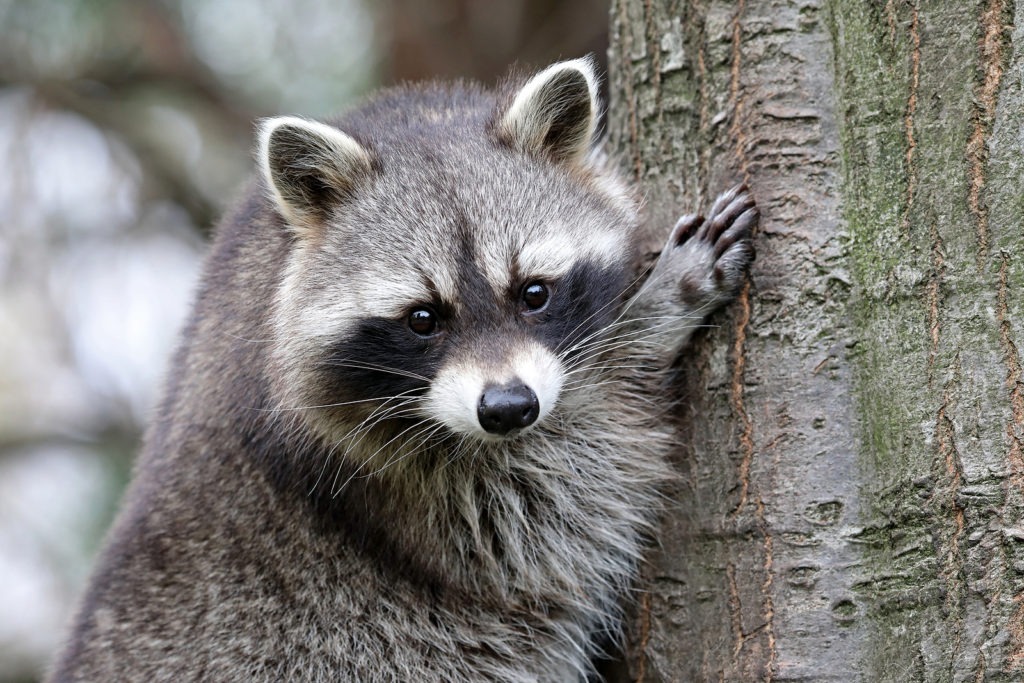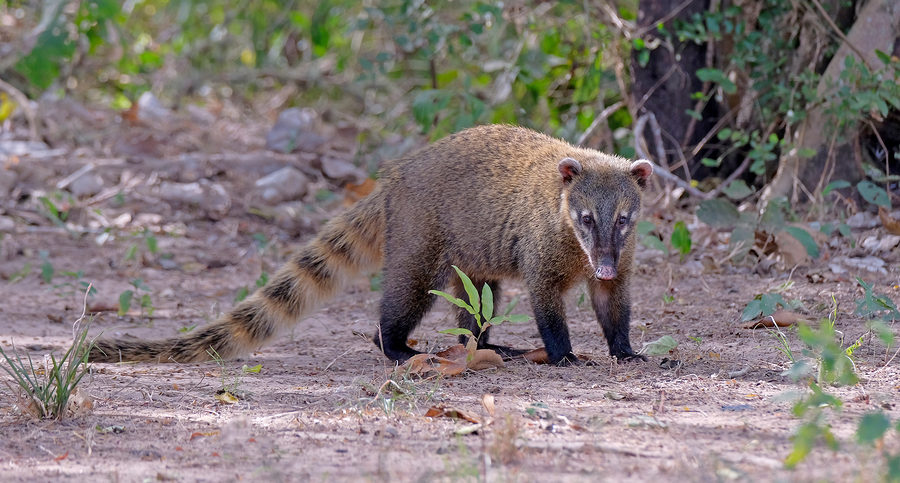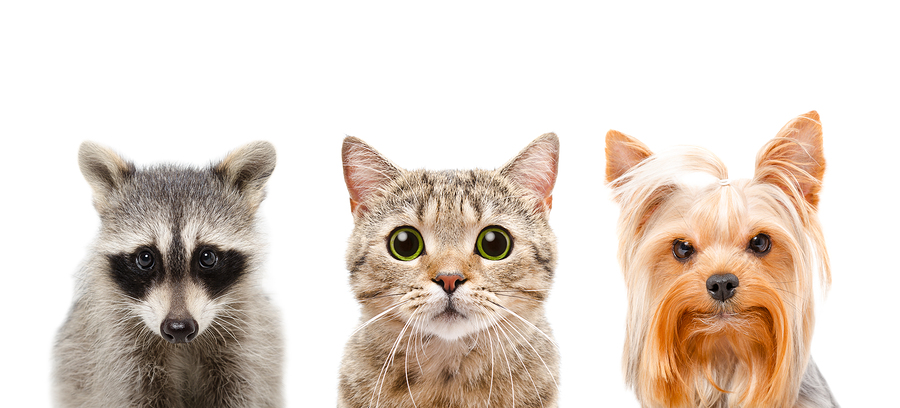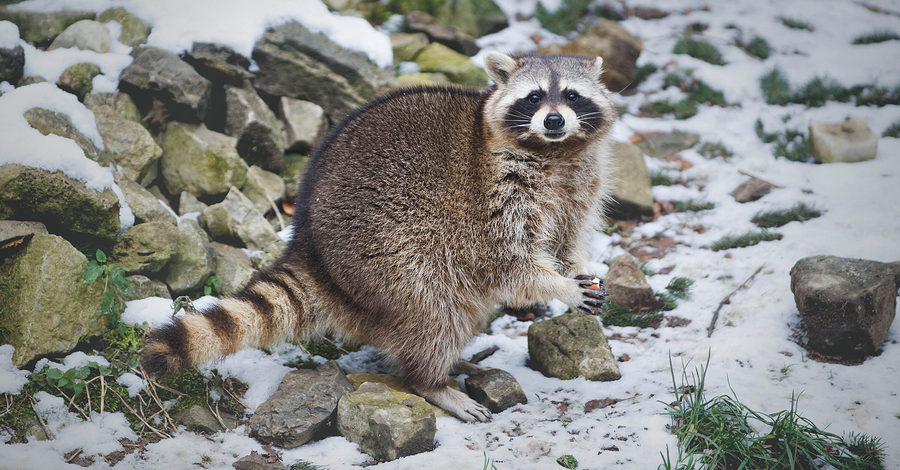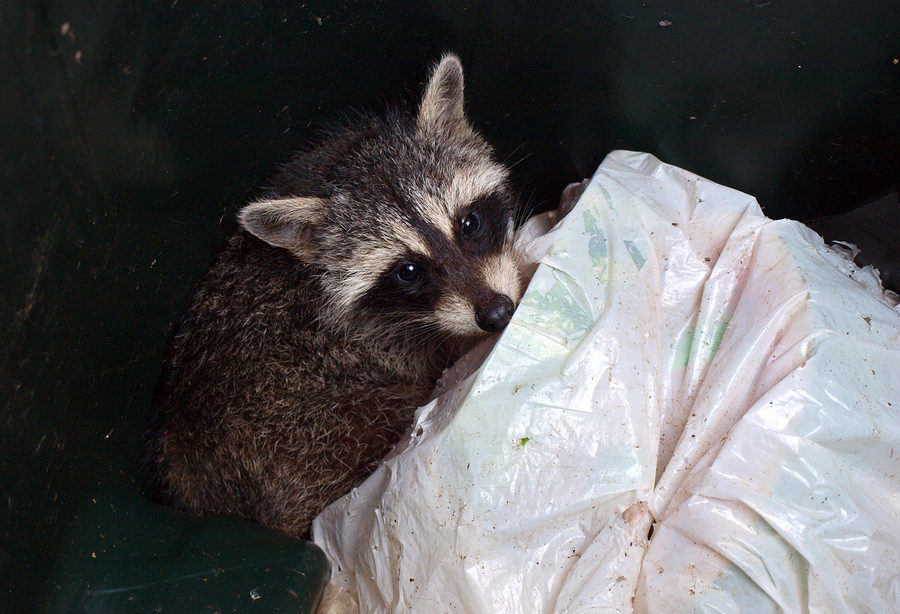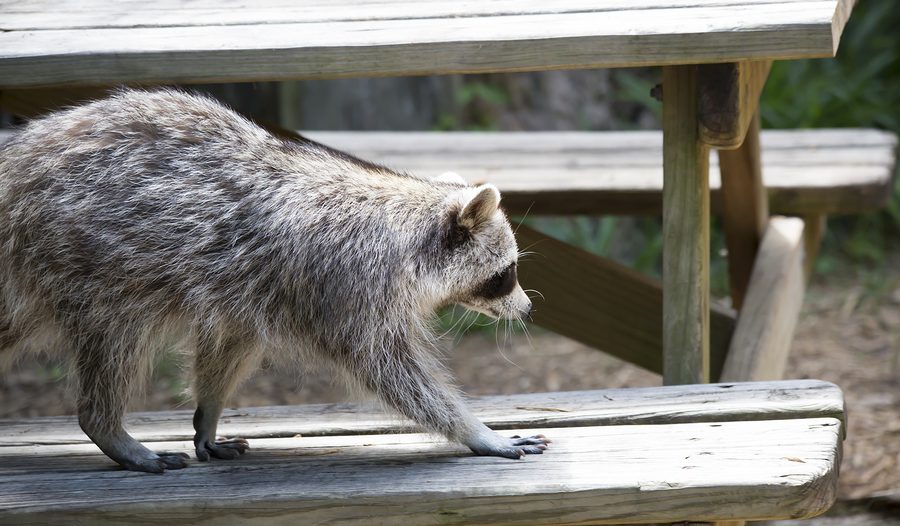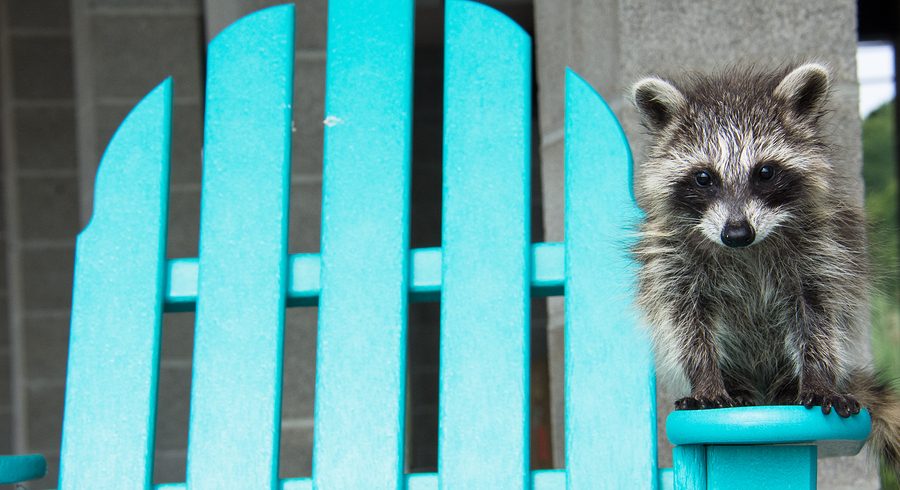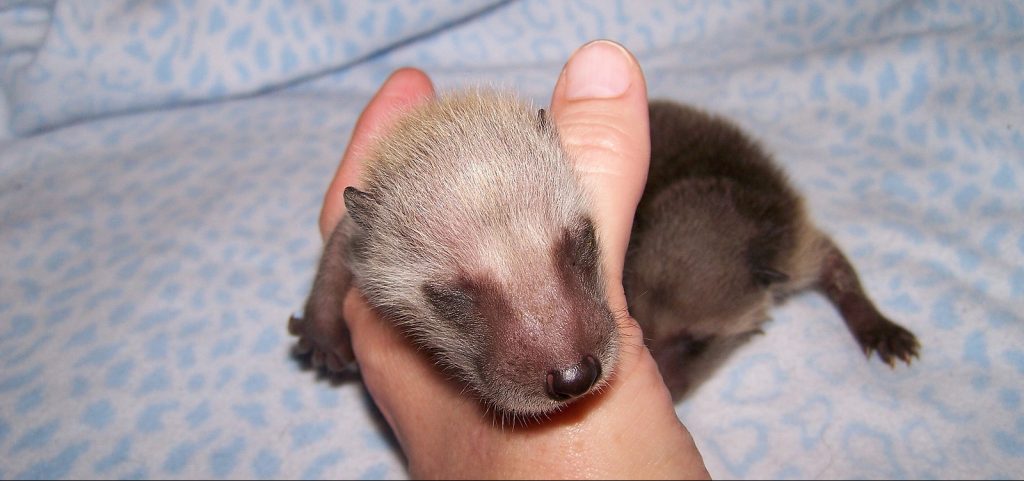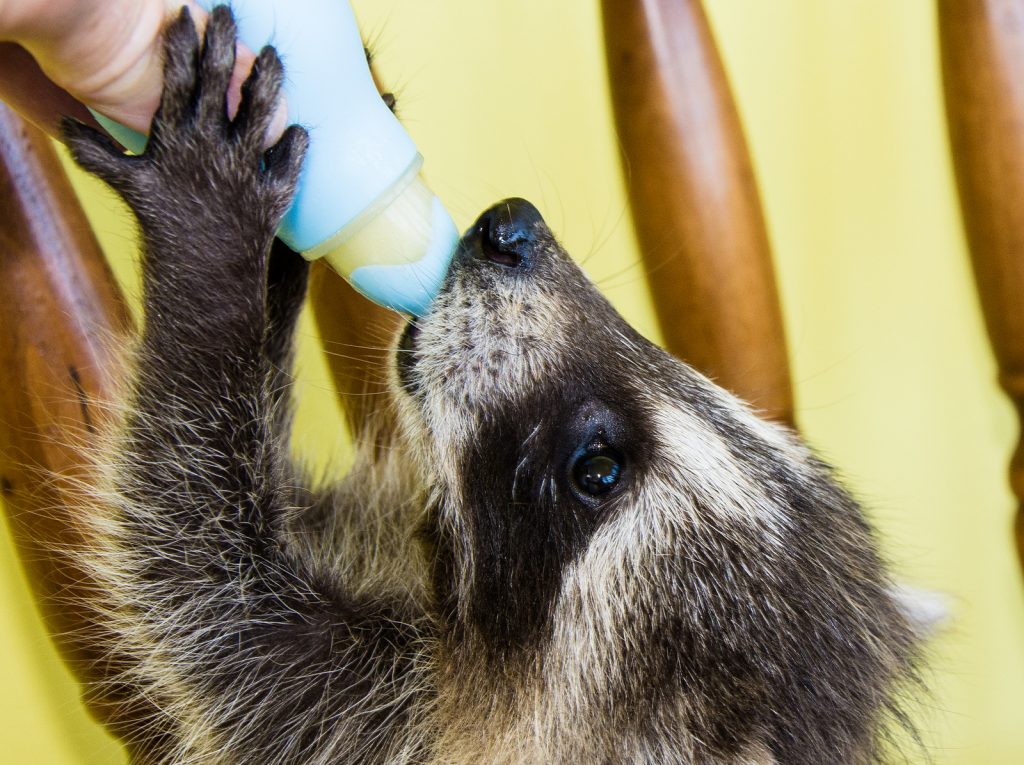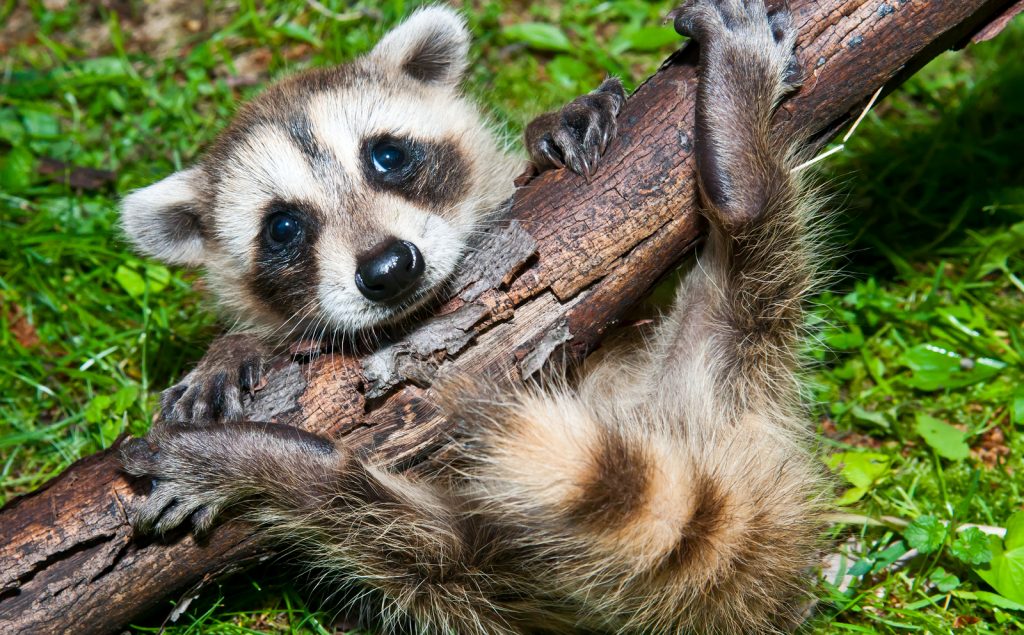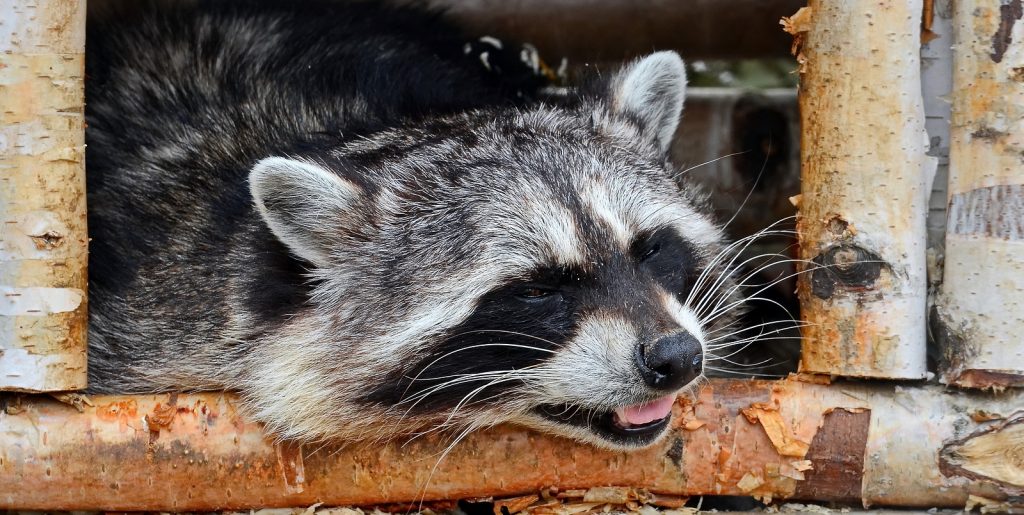Continue reading to catch up on some fun raccoon facts, and perhaps learn something about these interesting, intelligent critters you didn’t already know before! If you are having problems with raccoons on your property or inside your home, it is important to act fast by calling a wildlife rescue and control service to have them safely and humanely removed.
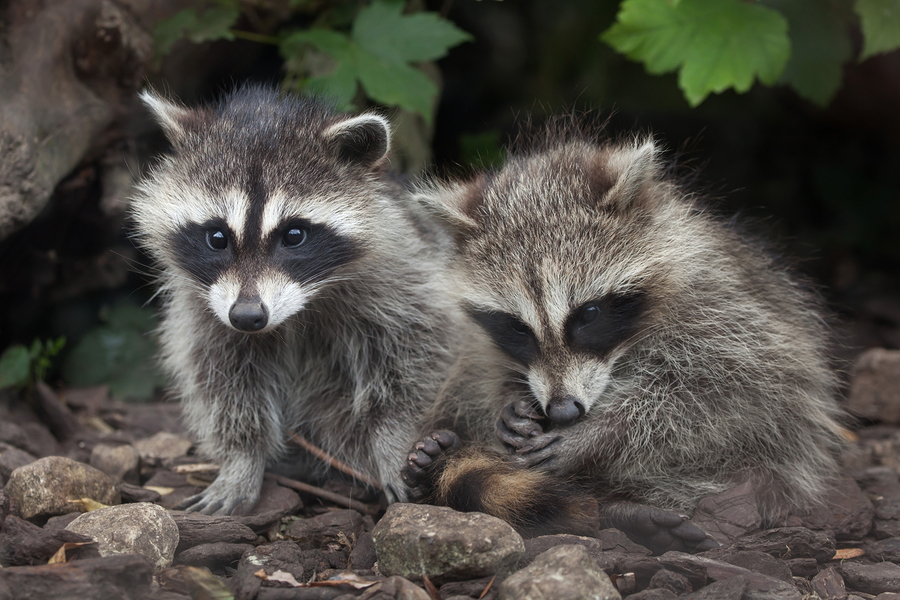
Raccoons are cute, furry, striped-tailed mammals that roam the lands of the United States, from tip to top, and then some! There are numerous species of raccoon, but the most well-known species is the North American Raccoon, scientifically referred to as Procyon Lotor.
Raccoon Reproduction and Family Life
Unlike some other mammals, raccoons do not form long-term bonds, but rather, only pair up to breed. Breeding season is between December and June, and adult females have a gestation period of around 65 days. They generally give birth to two or three, but as many as 5 or 6 baby raccoons, called kits. Raccoons are wonderful and protective mothers and care for their young in every aspect until they reach sexual maturity.
This happens in the late fall time, at about 6 to 7 months of age when kits turn into adults and leave the colony to go out on their own and start the reproductive cycle all over again! Although raccoons that live in domestication have survived for up to 20 years, in the wild, raccoons generally have an average lifespan of 1 ½ to 3 years as a result of natural predators, hit and runs, inclement weather, hunting, and more.
Raccoon Habitats
Raccoons generally live in deciduous forested and wooded areas since they are rich with sources of food, water, shelter, and protection. But with modern urban expansion and over-development, raccoons are adjusting more and more to living in residential and city areas; using attics, sheds, garages, roofs, and more as shelter, and rummaging trash cans and dumpsters for food.
This behavior and circumstance is what makes raccoons a “nuisance” pest in our neighborhoods. In the wild, raccoons use dens as shelter from weather and predators, as well as, to raise their young. The most popular locations for raccoon dens are inside tree holes, but they also use anything else that resembles a den-like shelter. This include rock beds, holes in the ground, hollow logs, beneath bridges, and more.
Raccoon Intellect
Raccoons have been studied for years because they are so fascinating in terms of intelligence and memory. Scientific studies have proved that raccoons retain a high intelligence quotient and acute memory. This means they remember puzzles, obstacles, places, and dangers. One such study had several raccoons open complex locks and then test if they could remember how to unlock these complex puzzles. The result: 11 out of 13 locks were opened by raccoons, and they were even able to remember how to unlock the puzzle after the locks were rearranged or turned them upside down. This intellect, along with their highly dexterous and sensitive paws, gives raccoons an upper-hand in many areas of their life.
Nuisance Raccoons
If you have a raccoon in the attic, or raccoons on your property that may cause structural damage and disturbance, call a professional wildlife removal company for non-lethal assistance. Raccoons are pesky little critters in terms of our homes and properties, but they are innocent and should never be harmed, trapped, or killed ever. A professional wildlife control service will humanely catch the raccoons and relocate them to a far and safe habitat. If they find raccoon kits, they will transfer them to a faraway rehabilitation center to be raised by trained wildlife rescuers and returned back into the wild when they reach adulthood.
Who to Call for Prompt and Professional Louisville Raccoon Control
Call our licensed pros today at 502-553-7622 for professional Louisville raccoon control services today. We offer a wide range of services for residential and commercial properties, including raccoon removal, control, prevention, proofing, cleanup, attic restorations, and more. Call 502-553-7622 to request a free estimate or information about Louisville raccoon control, today.


